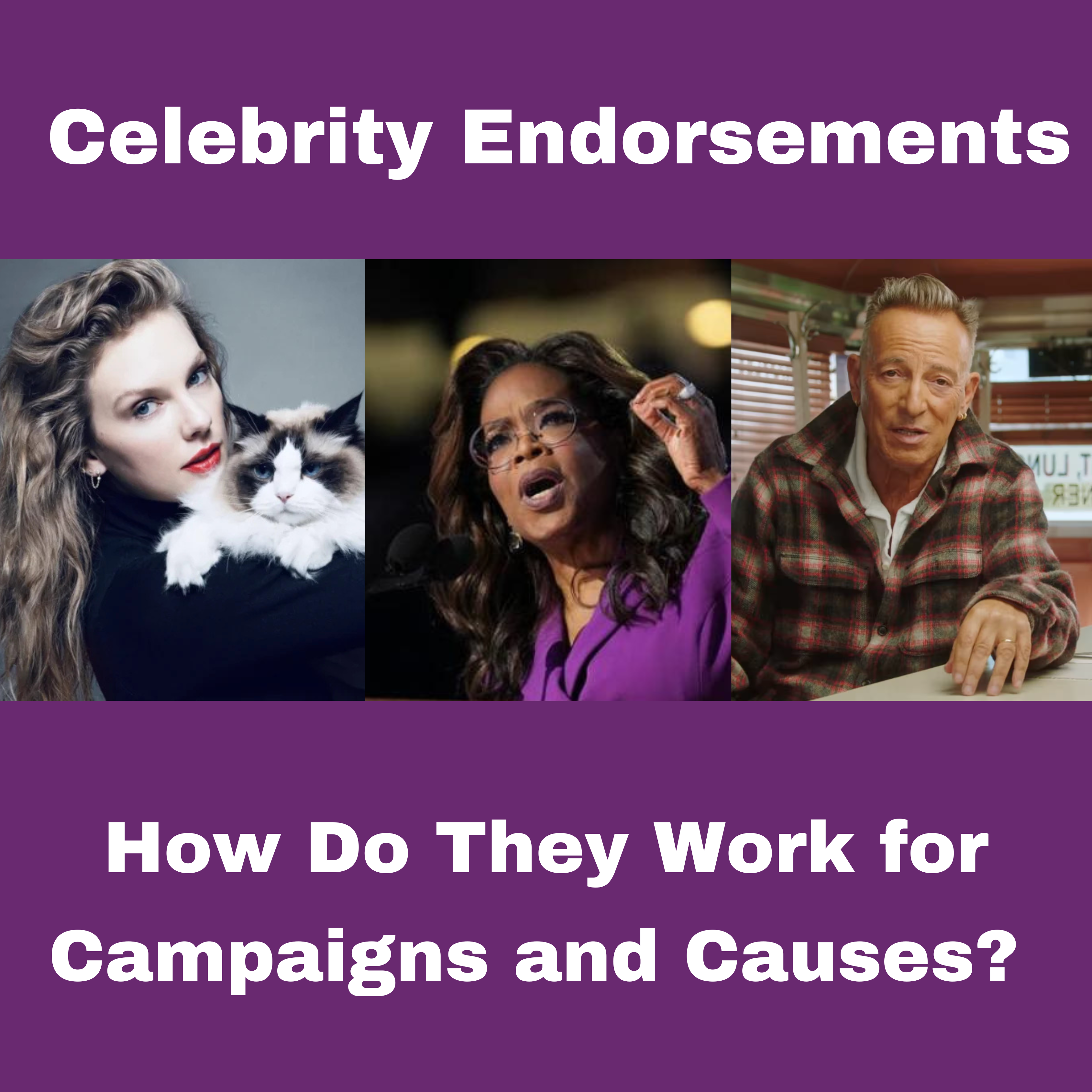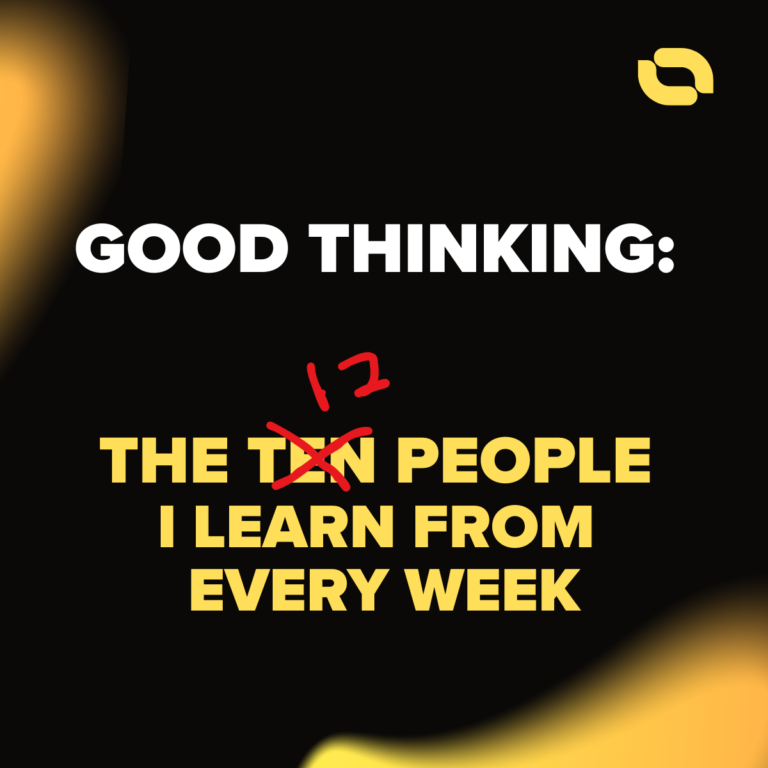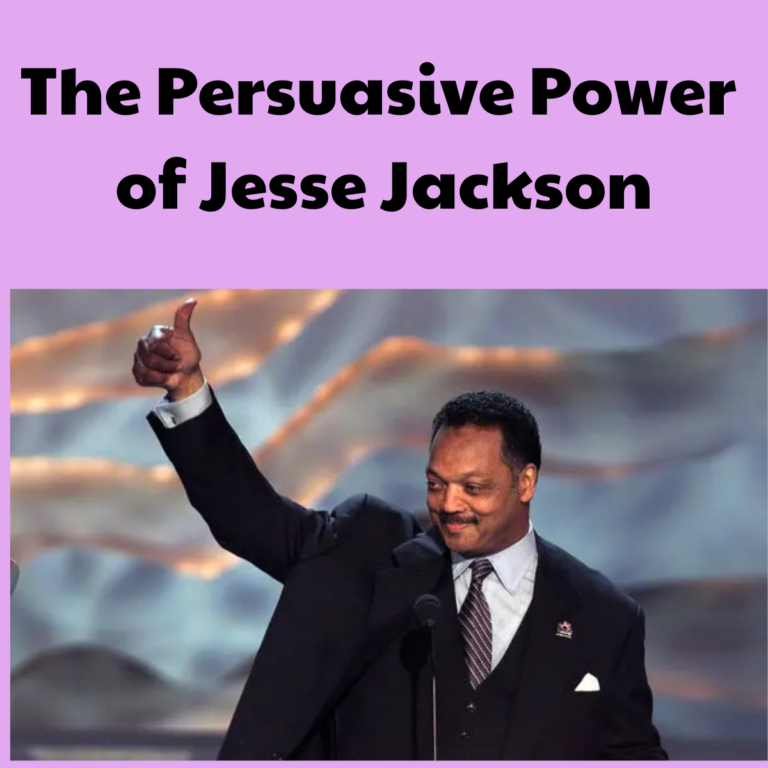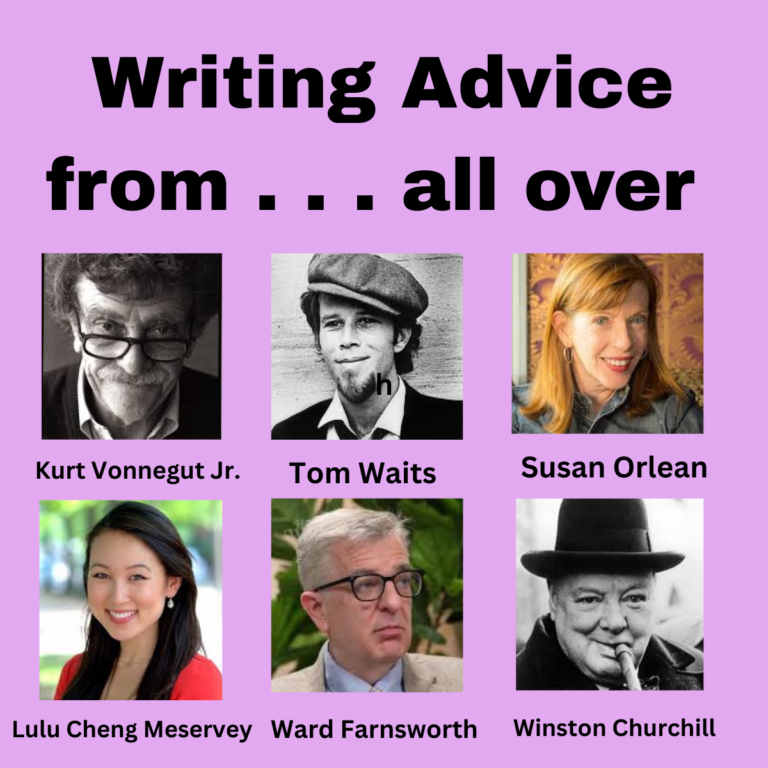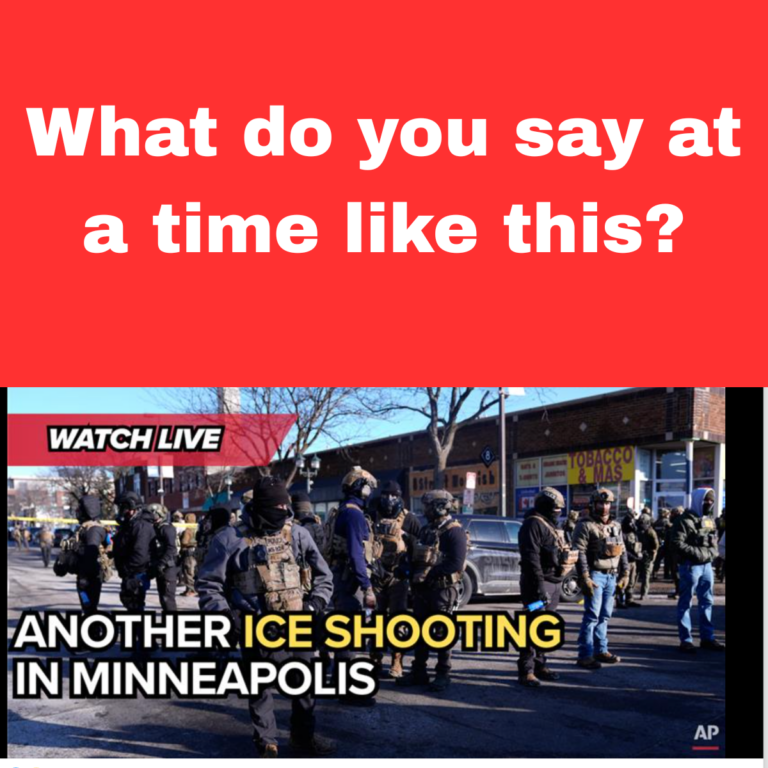From Oprah at the Convention to Taylor on debate night to the Boss just last week, Kamala Harris has been amassing a string of high-profile celebrity endorsements.
And it raises some big questions:

Timing Matters: It’s interesting to note that both Taylor Swift and Oprah Winfrey chose to announce their endorsement not to fill a quiet lull, but inside already high-profile moments. Oprah spoke at the Democratic Convention just a day after the Obamas brought, in her words, “some epic fire” in their speeches and a day before Harris’ own speech. And Swift announced immediately following the Trump-Harris debate.
They took already dramatic moments and elevated them higher. You might have higher impact using a celebrity as one of multiple drivers of an effort rather than its centerpiece.
Images and Context Matter: Taylor’s Instagram post was elevated by the photo of her with Benjamin Button, one of her three beloved cats and by her signing off as a “Childless Cat Lady.” And the setting of Springsteen’s video endorsement was far from incidental. He spoke in a flannel shirt, leaning against the counter in a diner. These visuals – along with Oprah’s stage presence at the podium — were critical elements in getting their message across. Think visually if and when you use celebrities.
Balancing Threat and Hope: Appropriate to her voice and personality, Taylor Swift’s message is positively framed. However, Winfrey and Springsteen – each in their own voice – strike a balance between recognizing the Trump threat and pointing to a brighter future.
Oprah never mentions Trump by name. She doesn’t have to: “There are people who want you to see our country as a nation of us against them. People who want to scare you, who want to rule you. People who’d have you believe that books are dangerous and assault rifles are safe, that there’s a right way to worship and a wrong way to love.”
But she keeps returning to her “best of America” theme.
Bruce makes the same points but in strikingly different language fitting his voice and personality. His Trump critique is more visceral and direct. He calls out Trump as “the most dangerous candidate for president in my lifetime.”
But, like Oprah, he leans into a better America. “Perhaps not since the Civil War has this great country felt as politically, spiritually and emotionally divided as it does than at this moment. It doesn’t have to be this way, The common values, the shared stories that make us a great and united nation are waiting to be rediscovered and retold once again.”
Whatever the outcome of the election, our rhetoric will have to capture that balance between threat and aspiration.
Avoiding An Instructive Tone: People don’t like to be told what to do – especially with something as precious as their vote in a presidential election. Swift and Springsteen both are clear they aren’t trying to preempt their audience’s decision:
Swift (emphasis added): “If you haven’t already, now is a great time to do your research on the issues at hand and the stances these candidates take on the topics that matter to you the most . . . I’ve done my research, and I’ve made my choice. Your research is all yours to do, and the choice is yours to make.”
Springsteen (emphasis added): “Friends, fans and the press have been asking me who I’m supporting in this most critical of elections. And with full knowledge that my opinion is no more or less important than those of any of my fellow citizens, here’s my answer.”
If the way you phrase celebrity support for your cause sounds like it’s pre-empting your reader’s decision-making, think about reframing it.

Now let’s address the impact. In the right circumstances, political endorsements clearly work. Look no further than Rep. James Clyburn’s 2020 endorsement of Joe Biden right before the North Carolina primary. Biden may never have been president without it.
And most agree that Oprah’s early 2008 endorsement of Barack Obama played a key role in his primary victory. There’s even a debatable study mapping of Obama’s vote count against subscribers to O magazine to conclude that her backing translated into a million votes.
As for this year, Taylor Swift’s Instagram support for Kamala Harris has generated over 11 million likes. And she drove over 405,999 users to visit the site vote.gov over the course of the following day. It’s a definite indication of some impact.
Academic studies suggest that endorsements matter most in certain conditions. Here’s how one of those studies summarizes the thinking (in social science researcher terminology):
“If the voter believes that there is a sufficiently high probability that the endorser is knowledgeable and shares common interests with him or her then, in equilibrium, the voter bases his or her decision on the endorser’s signal and persuasion occurs. Otherwise, the voter ignores the endorser and persuasion does not occur.”

Deploying everyone from people with small niche audiences to big-name celebrities, commercial brands will spend billions of dollars this year on influencer marketing.
On the other hand, a recent survey showed that 6 out of 10 consumers say they trust brands less when they use celebrity endorsements. And 8 out of 10 believe celebrity brand deals lack credibility. So, what gives?
If you’re venturing into using endorsements to elevate your nonprofit’s work, here are some guidelines to keep in mind.
- At the margins, celebrity endorsements can help your message get opened. An endorsement from a well-known figure will rarely be decisive in its own right. The real value comes at the margins. The first place that marginal impact comes into play is starting the conversation by getting an almost ignored message opened.
- A well-placed endorsement could help credential a group the reader doesn’t know very well. If someone isn’t quite sure they know enough about a group or its work, a trusted voice might be able to resolve that doubt in the group’s favor.
- A push from a well-known figure might persuade someone to follow through on an action they are on the fence about taking. The celebrity isn’t likely to move someone from “no way” to “yeah sure,” but they can cover the jump from “I think I will” to “okay, I’ll do it.”
- Remember marginal impact can be decisive. The difference between a strong response and a weaker one is often the number of people almost ready to act who either do or don’t take the plunge. That’s the place where a well-chosen endorser can make the difference.
- Strong endorsers have three qualities. First, they must be someone the reader recognizes and trusts. Name recognition alone isn’t enough. The celebrity or other influencer has to be someone the reader finds serious-minded and, therefore, worth listening to.
- The endorser has to be someone the reader believes to be knowledgeable. Just like in campaigns, nonprofit endorsements have the most impact when the reader isn’t confident of their own grasp of the situation. They have to see the endorser as someone capable of closing that knowledge gap.
- The endorser has to have a genuine connection to and passion for the subject at hand. Your endorser should have a real link to and emotional investment in your work. Otherwise, the endorsement will lack authenticity and likely be ignored.
Hope all this helps. See you next Monday!


